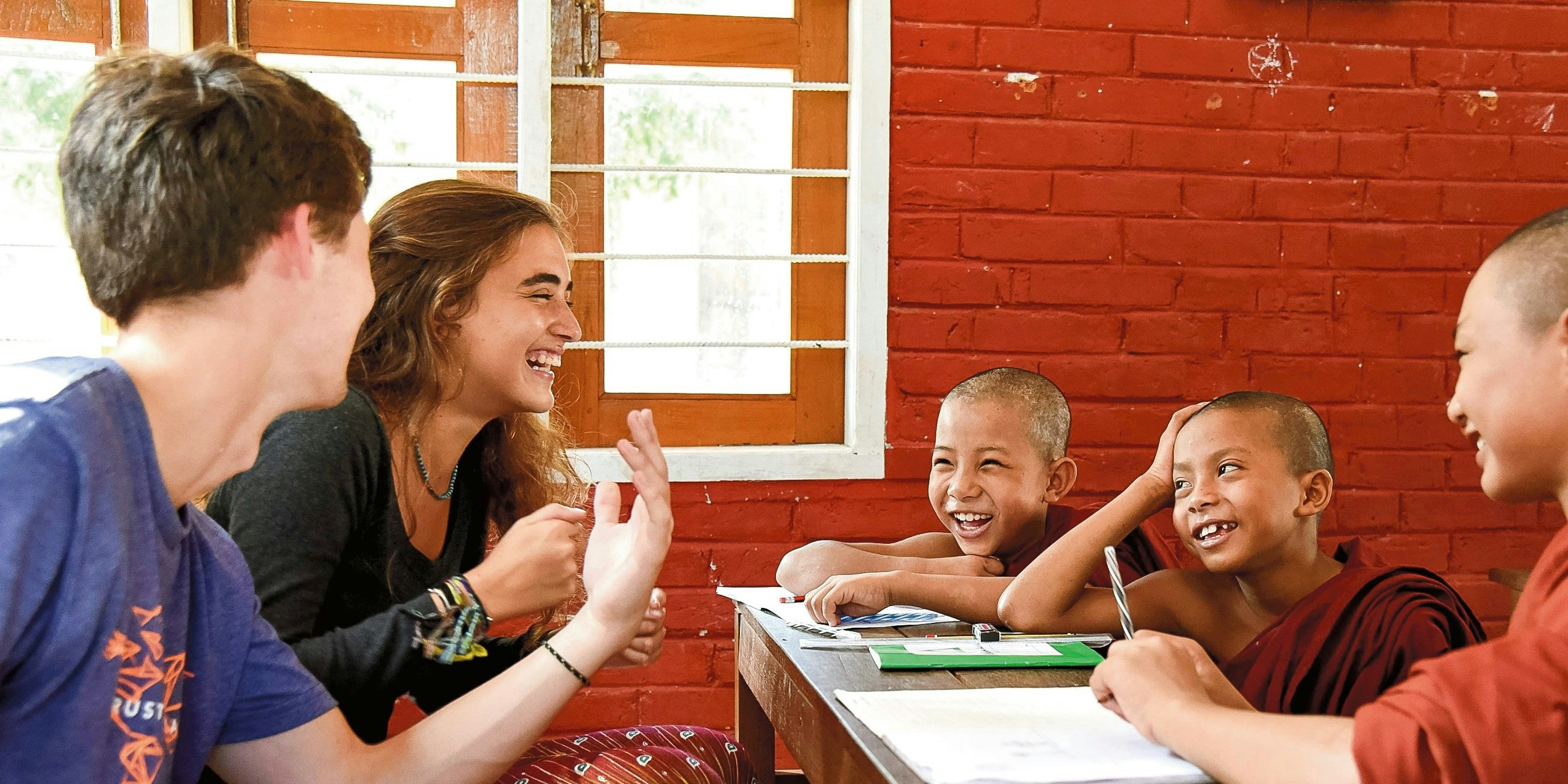- Author:
- Marisa LaValette
- Published:
- April 1, 2019
- Favorites:
- Tagged In:
- School Group Travel Educator Travel
Today’s conversations around pedagogy focus on highlighting the overlap between academic disciplines rather than distinguishing the lines between them. Cross-curricular projects continue gaining in popularity as schools attempt to remedy the ongoing realization that the traditional segmenting of student learning across disjointed subjects is not an accurate representation of the way students will need to implement their skills in real life.
Fortunately, more and more schools encourage, and even require, their teachers to collaborate with colleagues in other departments to develop cross-curricular projects and learning opportunities. Topics that appear to be unlikely pairings at first—science lessons in a literature class, for example—end up being a more accurate representation of how a student might need to use his or her skills in a real-life situation outside of the classroom. As the world’s cultures become ever more interconnected, students’ ability to act skillfully and conscientiously in a broader array of situations can serve to support, strengthen, and facilitate the exchange of ideas and solutions between the world’s cultures.
A rewarding outcome of cross-curricular projects is that students come away from the lesson with actual strategies for problem solving, whether it be the drafting of a business plan for a small farmer to grow her business, the coordination of sanitation strategies for growing communities in rural areas, or a marketing plan to inspire people to change their shopping habits as a response to the role plastic waste contributes to global warming. When students are placed in situations that call for hands-on problem solving where learning from one discipline needs to be applied to another, students not only understand the value of their knowledge, but they also feel empowered to affect change.
Are you a teacher looking for ways to connect your curriculum with the lessons in other colleagues’ classrooms? Continue reading below for programs that highlight current global Critical Issues and promote co-teaching opportunities for you and your fellow educators.
Cuba | Innovation in Action
A learning experience in Cuba offers students a firsthand introduction to a country emerging from decades of social and economic isolation. History and economics teachers can highlight the changing landscape for small business owners as a result of growing ecotourism, while Spanish learners discover the diversity of the Spanish language. The Spanish spoken in Cuba may sound different than the Spanish you teach in your classroom. By the end of the trip, students hone their design thinking skills and learn how to pitch their ideas for economic growth.
Morocco | Peace, Wonder, and Understanding Islam
While in Morocco, students learn from imams about Islam and gain insight from the female perspective, learning directly from a mursheda. Another unique opportunity is one-on-one time with Moroccan youth, where students gain a more nuanced perspective. Students catch a glimpse of the effects of colonization during Arabic and French lessons and take in the view of the nomadic Bedouin way of life while on camelback.
Dominican Republic | Public Health in the Caribbean
In the Dominican Republic, students observe the disparities in health care quality between wealthy and poor while visiting local hospitals. Students promote public health while installing sanitation facilities or educating about clean water initiatives and even have the opportunity to earn Wilderness First Aid (WFR) certification.
Fiji | Marine and Environmental Field Studies
Students’ understanding of climate change comes to life while engaging in marine and environmental field studies. Their time in Fiji sheds light on the reality of locals’ daily lifestyle, which comes into stark contrast with the notion of luxury tourism associated with southern Pacific islands.
Learn more about other Rustic Pathways Critical Issues Programs and how to connect these educational experiences with your academic curriculum.
Are you a teacher looking to collaborate with a colleague on a particular project? Which global issues and student skill sets are you looking to highlight for your students?
Marisa LaValette
Contributing Writer
Marisa served as Program Leader and Flight Leader for Rustic Pathways and always looks back fondly on Rustic's first summer in the Dominican Republic in 2012. Marisa shared her love for language and community service with students while working alongside them in the bateyes. Marisa is a former Spanish teacher who works as a yoga instructor and blogger in San Francisco.
